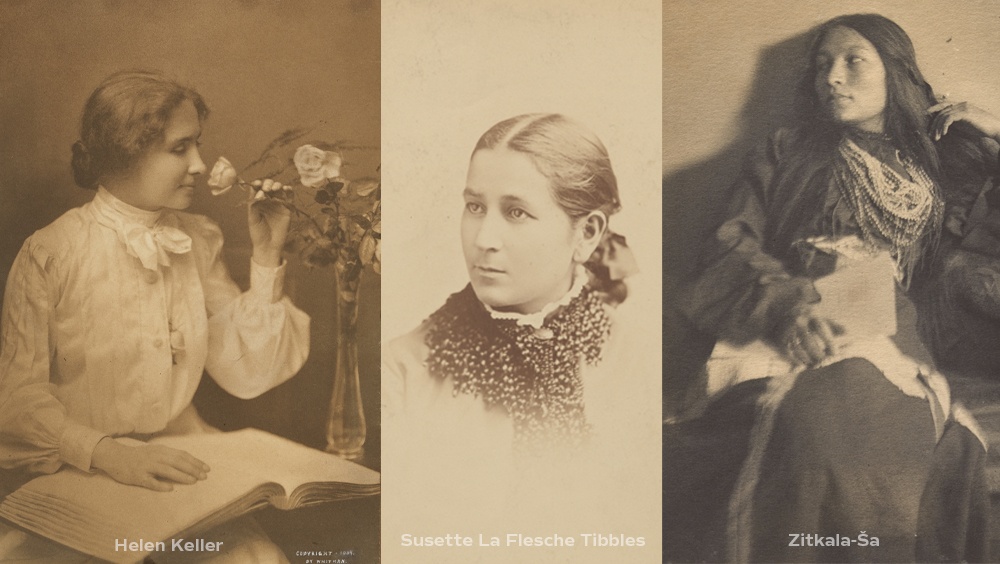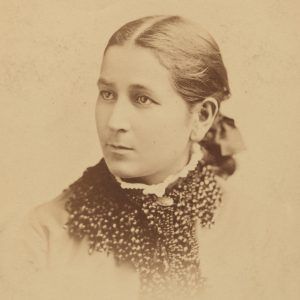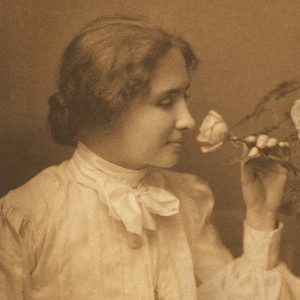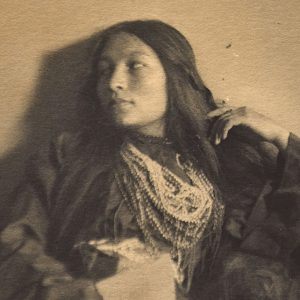9 Women Who Used the First Amendment to Shape History

“All men are created equal,” the Declaration of Independence claims, but since the earliest days of the United States, women and girls have been praying, speaking, publishing, gathering and calling on the government to protect everyone’s fundamental freedoms.
You may not know much about these First Amendment heroines, but they all embraced their rights to champion causes they cared about and, in doing so, shaped our nation’s history.
Penelope Barker’s tea party women petitioned for change
The Boston Tea Party wasn’t the only key protest against British policies by early colonists. The Edenton Tea Party in North Carolina in October 1774 was the earliest known political rally of women colonists.
Penelope Barker organized 50 women to sign a petition boycotting British tea in protest of tax policies. The women were mocked as poor mothers in a political cartoon published in London.
Barker’s activism continued during the Revolutionary War.
“We women have taken too long to let our voices be heard.” – Penelope Barker
Nashala Hearn petitioned for religious freedom at school
When Nashala Hearn first started wearing a hijab, a head covering worn by some Muslim women and girls, to her Oklahoma elementary school, at first, everything was fine. But on Sept. 11, 2003, the school claimed her religious clothing violated the dress code, which prohibited hats and head coverings. She refused to remove her hijab – and was suspended.
Eventually, the U.S. Department of Justice sued the school district for discriminating against her right to exercise her religion by wearing a hijab. She won, protecting students’ right to practice their faith at school, even if there’s a dress code.
“I continued to wear my hijab, because it would be against my religion not to.” – Nashala Hearn
Jovita Idár reported on injustices for Mexican Americans, even after being shut down
Jovita Idár was a Mexican American journalist. In 1914, when Texas Rangers came to shut down one newspaper she worked for, she physically blocked the men from entering the office. When the Rangers later did force the newspaper to close, she kept reporting at her father's newspaper.
She supported women's voting rights and organized Mexican American readers to advocate for equality.
Idár was also a volunteer nurse during the Mexican Revolution.
“Working women know their rights and proudly rise to face the struggle.” – Jovita Idár
Dr. Mildred F. Jefferson assembled activists to petition for policies
Dr. Mildred F. Jefferson was the first Black woman to graduate from Harvard Medical School. She broke barriers for women of color in medicine and spent her career working at the intersection of medicine, ethics, law and policy.
She is best known for helping to found and lead the National Right to Life Committee in 1968, which organizes and campaigns for policies to end abortion.
“I am at once a physician, a citizen and a woman.” – Dr. Mildred F. Jefferson
Marsha P. Johnson protested for LGBTQ rights
Marsha P. Johnson moved to New York City as a teen, where she selected her name – the “P” standing for “pay it no mind.” She was one of the many LGBTQ people of color on the frontlines at the Stonewall Inn during the 1969 raid on the gay bar, which generated protests and began a new era in the LGBTQ rights movement.
As a drag queen and trans woman, Johnson especially advocated for youth and for HIV/AIDS awareness.
“I was no one, nobody, from Nowheresville until I became a drag queen.” – Marsha P. Johnson
Helen Keller spoke out for voting rights and civil liberties
Helen Keller is best known as an activist for disability rights after a childhood illness left her blind and deaf. She was also a renowned speaker and author, and she used her First Amendment freedoms to speak out for causes including women’s voting rights. In 1920, when Tennessee became the 36th state to ratify the 19th Amendment, ensuring women’s suffrage nationwide, Keller helped co-found the American Civil Liberties Union to continue to protect civil liberties and First Amendment freedoms for all.
In 1964, she was awarded the Presidential Medal of Freedom.
Susette La Flesche Tibbles testified for the protection of Indigenous rights

Susette “Bright Eyes” La Flesche Tibbles by José Maria Mora (National Portrait Gallery/Smithsonian Institution)
Susette "Bright Eyes" La Flesche Tibbles was an Omaha woman who served as a translator in a successful 1879 lawsuit by Standing Bear, a Ponca chief, against the government's claim that members of his tribe were neither people nor citizens. Tibbles was an Omaha woman who served as a translator in a successful 1879 lawsuit by Standing Bear, a Ponca chief, against the government's claim that members of his tribe were neither people nor citizens.
After that, she became a frequent expert witness, testifying in lawsuits and before Congress on behalf of Indigenous rights.
She was also a teacher who worked at a government school on her people’s reservation.
“Peaceful revolutions are slow but sure.” – Susette “Bright Eyes” La Flesche Tibbles
Miné Okubo’s art, writing and testimony helped right wrongs for Japanese Americans
Miné Okubo was a Japanese American artist and anthropologist. In 1942, she and her family were forced into internment camps, like many Japanese Americans during World War II. She documented the experience through her art and later through writing – both types of expression protected by the First Amendment. Her book about her experiences, “Citizen 13660,” won several awards, and her drawings were published in magazines like Time.
Okubo also testified to federal agencies about her experience, and Congress later recognized that the forced relocations were illegal.
“I was a citizen. I didn’t do anything wrong.” – Miné Okubo
Zitkala-Ša used the power of the press to advocate for Indigenous rights and culture
Zitkala-Ša was a Yakton Dakota Sioux woman who in 1884 at age eight was sent to a missionary boarding school where Indigenous children like her were forced to give up their spiritual and cultural traditions — even their names.
Called Gertrude Simmons at her school, Zitkala-Ša appreciated the education she received but spent her life advocating for the protection of Indigenous rights and preservation of culture.
She wrote extensively for magazines, collected stories and published reports that spurred investigations into the treatment of Native people.
“We serve both our own government and a voiceless people within our midst.” – Zitkala-Ša
What Is the Marketplace of Ideas?
Campus Protests 1 Year Into Israel-Hamas War: Where America Stands
Related Content
$30,000 Giving Challenge
Support the Freedom Forum’s First Amendment mission by Dec 31st and double your impact.



